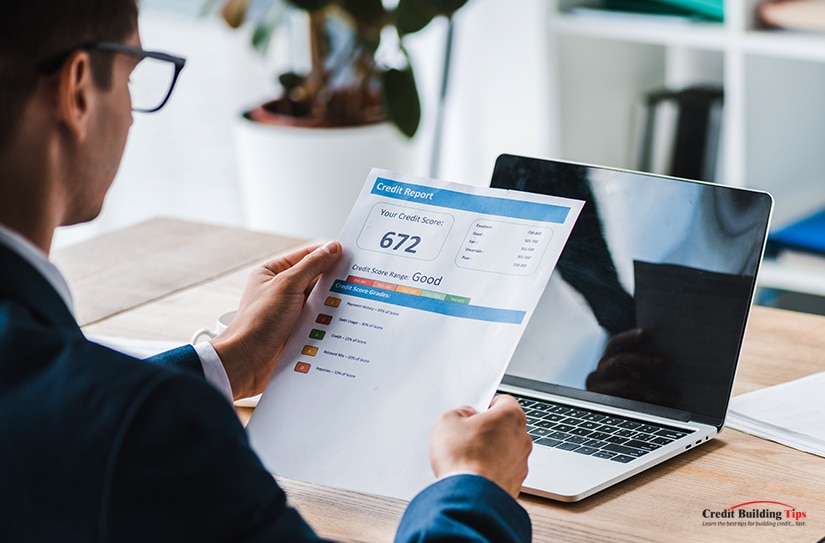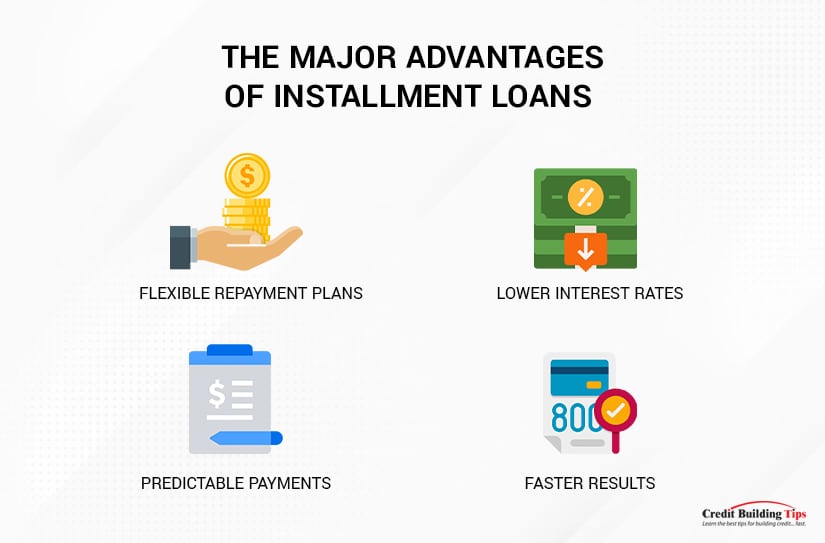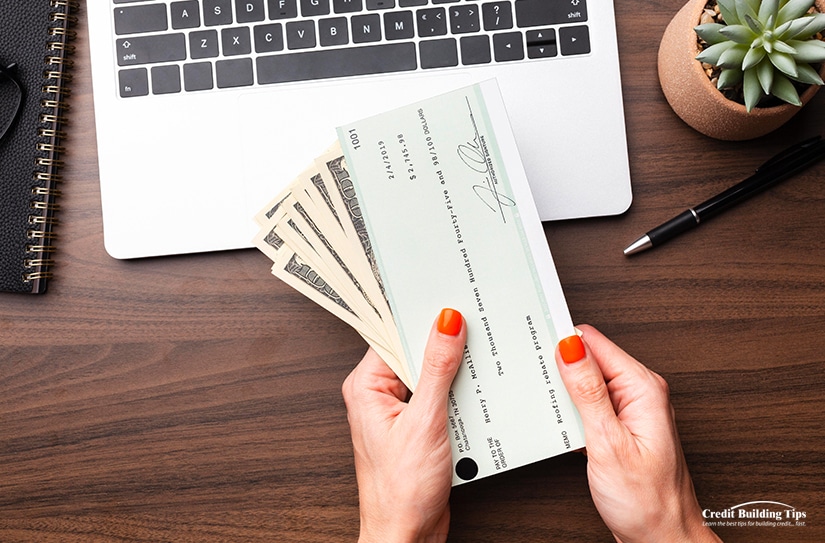Are you looking to rebuild your bad credit score? Installment loans may be the solution you're looking for and you're about to learn exactly what steps to take to get started right now.
 Installment loans are a great way to help you pay off debt, fix bad credit, increase your credit score in general, and get back on track financially. I've personally used them in the past to help my own credit score.
Installment loans are a great way to help you pay off debt, fix bad credit, increase your credit score in general, and get back on track financially. I've personally used them in the past to help my own credit score.In this blog post, we'll discuss the benefits of using installment loans to rebuild your bad credit score and how to go about it. We'll also provide tips and strategies to help you make the most of your loan and keep your credit score rising.
An installment loan provides a borrower with a fixed amount of money that must be repaid in regular payments over a period of time. Each payment includes repayment of a portion of the principal amount borrowed and payment of interest on the debt.
The main variables that determine the size of each loan payment are the amount of the loan, the interest rate charged by the lender, and the length or term of the loan. The regular payment amount, typically due monthly, stays the same throughout the loan term, making it easy for borrowers to budget for their required payments in advance.

Installment loans can also offer better terms than other forms of financing, such as payday loans, and can help individuals build their credit score if they make all payments on time. This can make them an excellent choice for those with bad credit who want to rebuild it.
They are closed-ended debt products — you get the loan fund as soon as you're approved and then pay the loan off every month for a predetermined loan term. They're a "handy personal finance tool" that lets you pay off a considerable debt in "small, manageable chunks."
When you take out an installment loan, your lender will do a hard credit check, which can temporarily lower your score. However, if the loan is from a reputable lender, they will report all on-time payments to at least one of the three major credit bureaus.
Payment history makes up 35% of your FICO score, and regular, on-time payments can help build it up. Late payments can greatly impact your score, with even one 30-day or more late payment knocking off up to 100 points.
Most lenders have the option to set up automatic payments, so you don't have to worry about forgetting to pay. This removes the pressure and ensures that your credit score will benefit from regular payments.
The other 65% of your FICO score comes from the amount of debt you owe (30%), the length of your credit history (15%), and new accounts/inquiries (10%). An installment loan can also improve these factors by providing you with access to additional funds when needed.

As long as you use the money responsibly, not maxing out your available balance, an installment loan can increase your available credit score without creating too much debt. You need to be careful not to rack up any additional debt while trying to rebuild your credit score; only borrow what you need and make payments regularly and on time to see positive results.
Try to keep your credit utilization low — ideally below 30%. This means having balances that are no more than 30% of your overall available credit limit. If you're able to keep your utilization low and consistently make payments, then using installment loans for bad credit can help you rebuild your credit score over time.
Staying on top of managing your finances with budgeting and tracking expenses may give you added peace of mind knowing where exactly your money is going each month. By doing this, you may even find opportunities to save more money and allocate those funds towards paying down existing debt or growing your savings account.
Installment loans are a great way to rebuild your credit score, as they can be an effective tool for repairing bad credit. With an installment loan, you can make a series of payments over a period of time that can help you improve your credit score.

The major advantages of installment loans include the following:
Flexible Repayment Plans: Installment loans typically come with flexible repayment plans that allow you to spread out the cost of the loan over an extended period of time. This makes it easier to manage your payments and, in turn, helps you to improve your credit score better.
Lower Interest Rates: Because installment loans usually involve smaller amounts of money and require regular payments, lenders may be more willing to offer lower interest rates. This can help you save money in the long run as you will pay less interest over the life of the loan.
Predictable Payments: Unlike other types of loans, installment loans require regular payments, which makes them much easier to plan for and manage. This also helps reduce the risk of falling behind on payments, as you will always know exactly how much you must pay each month.
Faster Results: Since you will make regular payments on an installment loan, this will help you build your credit score much faster than if you were just trying to pay off a lump sum loan at once. This is why many people choose to use installment loans when they are trying to repair their bad credit scores.
While taking out an installment loan can benefit someone with a bad credit score, there are some risks associated with it. First, you need to consider the amount of money you're borrowing. If you take out a loan that's too large for your budget, you may struggle to make the payments on time, which could further damage your credit score.
You should also consider the interest rate. Installment loans tend to have higher interest rates than other types of loans, so you should make sure you can afford to pay the total amount you borrowed. This is especially true if you're taking out a longer-term loan with a high-interest rate.
If you fail to make payments on time, your loan may go into default, which means that you'll be responsible for paying late fees and any additional costs associated with the loan. This could put you in a worse financial situation than when you started.

It's important to weigh the pros and cons of taking out an installment loan before making a decision.
While installment loans can help rebuild your bad credit score, it's important to make sure that you understand the risks and can afford to make all of the payments on time.
There are many types of installment loans, including personal loans, auto loans, student loans, buy now, pay later loans, no-credit-check loans, and mortgages.
Personal loans are unsecured loans that are generally used for larger purchases such as home improvement projects, debt consolidation, medical bills, or starting a business. Personal loans typically offer repayment flexibility and hardship payment relief, making them more desirable than credit cards.

Unlike secured loans, unsecured loans allow you to borrow money outright (after the lender considers your financials). Secured loans are backed by some type of security, and the lender places a lien on the asset you offered as collateral. Once the loan is repaid in full, the lien gets removed.
Auto loans are typically secured by the vehicle you are purchasing and often come with in-house financing and refinancing options.

Auto loans usually have lower interest rates and longer repayment periods than credit cards.
Student loans are offered by the federal government and online lenders. Student loans typically have flexible repayment options and low-interest rates.

They affect your debt-to-income ratio (that's the amount of debt you owe compared to your total income). If this ratio is abnormally high, it could affect your ability to qualify for any additional credit.
Buy now, pay later apps are offered by most retailers, especially online retailers. These apps allow you to make purchases without using your credit card and then pay them off in installments over time. They also often include promotional discounts and other incentives to encourage customers to use their services.

According to Investopedia, the best buy now, pay later apps of 2023 are:
These types of loans are often extended by payday lenders and don't require a credit score check. They're meant to help consumers with a small personal loan, usually limited to $500.

Payday loans are borrowed against your next paycheck, where you give the lender a check that's postdated for the amount you are borrowing. Once you get your next paycheck, the lender will cash your check. These loans are short-term and charge hefty fees for the privilege.
Mortgages are generally larger loans used to purchase a home.

Mortgages can come with fixed- and adjustable-rate options, larger loan amounts, government-insured mortgages, and conventional loans.
Finding the best installment loan for your needs can be daunting, especially if you have a poor credit score. However, it is important to shop around and compare lenders to get the most favorable terms.
When looking for an installment loan, looking for a lender willing to work with you despite your credit score is important. You should look for a lender who offers competitive interest rates and fees, as well as flexible repayment terms. Don't forget to read through the fine print of any loan agreement to ensure no hidden fees or costs.
It's also important to research lenders carefully. Check out the company's reputation online and make sure they are accredited by the Better Business Bureau. Ask friends and family who they have used in the past and read reviews from other customers. This will help you narrow down your list of lenders and make sure that you are dealing with a reputable lender.
Consider talking to a financial advisor about your options. A financial advisor can help you weigh the pros and cons of different loans, negotiate better terms, and determine if an installment loan is the right option for you. With their help, you can make an informed decision about the best loan to meet your needs.

Once you find a suitable installment loan, it's important to stay current on payments so that you can begin rebuilding your credit score. Make sure you pay at least the minimum payment amount each month and try to pay more if possible.
Paying on time each month shows creditors that you are responsible and reliable, which can go a long way toward improving your credit score. Additionally, keeping track of your spending is essential when taking on new debt, so set up a budget plan before taking out an installment loan.
Keep in mind that rebuilding bad credit takes time. If you stick with your payment plan, make smart financial decisions, and remain patient, you will eventually see improvements in your credit score over time. With hard work and dedication, you can use installment loans to rebuild your bad credit score and achieve the financial freedom you need.
When considering an installment loan to help rebuild your bad credit score, it's important to look at all of your options.
One option is to use a line of credit or credit card. This offers more flexibility than an installment loan, as you can make interest-only payments during the draw period. Credit cards offer perks like cash back and travel rewards, but their high-interest rates can be avoided by paying back what you spend at the end of the billing period.
Another alternative to an installment loan is a home equity line of credit (HELOC). This is the best option if you need to cover a series of major expenses.
Lines of credit and credit cards are best for frequent expenses, while installment loans are best for one large expense. An advantage of an installment loan is that it has fixed interest rates, which helps with budgeting for the future.

It is important to carefully consider all of your options when making decisions about how to finance a purchase or rebuild your credit score. While an installment loan may be the best choice for some, other options like lines of credit and credit cards can offer greater flexibility and additional rewards.
An installment loan may be the best choice if you have one or more big expenses to cover. And as with all things related to credit, paying your loans on time and in full is the absolute best way to build your credit score.
Once you get into this habit, you'll qualify for low-interest rates and have the ability to finance the purchase of a home or car on credit.